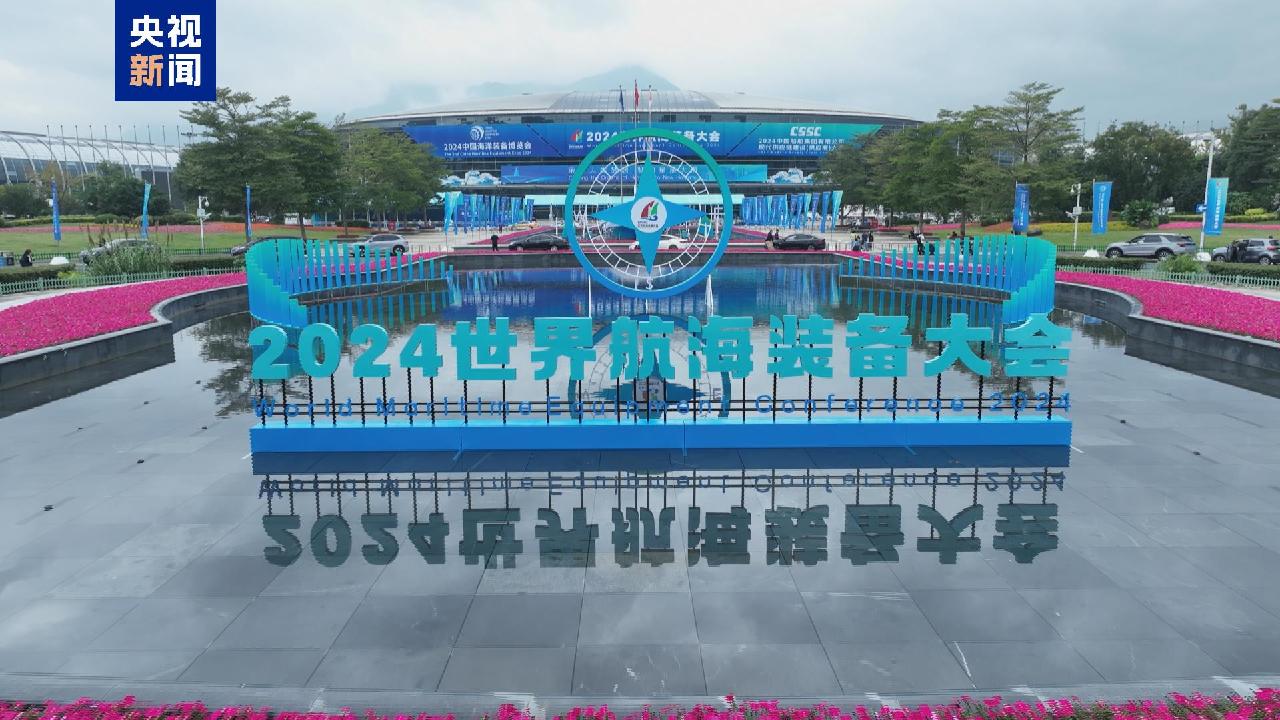2024 World Maritime Equipment Conference Commences in Fujian, East China
The 2024 World Maritime Equipment Conference in Fuzhou, China, showcases the newest developments in maritime technology. Centered on innovation, sustainability, and international collaboration, the event seeks to drive the industry towards more intelligent and environmentally friendly practices, while featuring state-of-the-art solutions in maritime equipment.

Organized by the Fujian Provincial People's Government, this year’s conference is centered around the theme "Carrying the Dreams of Humanity to New Horizons." It features a keynote address and 11 specialized forums covering subjects such as intelligent maritime transportation and smart fisheries, with contributions from experts and representatives within the industry.
Among the cutting-edge products showcased is the 7,500-vehicle LNG dual-fuel ro-ro vessels Minjiangkou and Liaohekou, constructed by Mawei Shipyard under Fujian Shipping Heavy Industry Co. Ltd. and Xiamen Shipbuilding Industry Co. Ltd.
These vessels are recognized as the largest eco-friendly car carriers globally, boasting a maximum capacity for 7,700 vehicles. They primarily operate on LNG and provide an option for traditional fuel, enhancing operational flexibility while markedly reducing emissions. Compared to conventional carriers, these vessels achieve a 20 percent decrease in energy consumption and a 27 percent reduction in carbon emissions, saving over 2,100 tonnes of carbon on each trip to Europe.
The exhibition is organized into distinct areas focusing on significant advancements in maritime technology, including digital and intelligent equipment, marine exploration technologies, and sustainable fisheries. The digital and intelligent technology section showcases innovations such as digital management systems for ports and smart shipping logistics tools, illustrating a trend towards more efficient, technology-driven maritime operations.
Another important section highlights marine exploration technologies critical for deep-sea and environmental research. This area exhibits equipment for resource surveys, unmanned underwater vehicles, marine sensor networks, and oceanographic instruments. Additionally, the marine fisheries section promotes sustainable practices featuring equipment for deep-sea aquaculture and smart fisheries management tools, contributing to a more sustainable fishing industry.
"Fujian is focused on differentiated development to create high-tech vessels with specialized advantages," said Shi Huicai, chief engineer at Fujian Provincial Department of Industry and Information Technology. "This includes achievements like the 7,500-vehicle LNG dual-fuel ro-ro vessel, the first of its kind globally, which has received recognition both nationally and internationally."
Alongside shipping advancements, China has also been working on offshore aquaculture platforms. Notable projects include Haiwei No. 2, the largest mariculture platform in Guangdong, and Mintou No. 1, which represents Fujian's first deep-sea aquaculture and fishing tourism platform. As Shi explains, these platforms integrate aquaculture, tourism, and marine research, nurturing a connected coastal economy.
Despite being in its early stages and facing challenges such as high investment costs and limited technological integration, the development of China’s deep-sea aquaculture shows promise. An October study published in Frontiers in Marine Science identified potential accelerators, including high economic returns, superior nutritional quality, vast domestic consumption potential, and successful global practices exemplified by countries like Norway.
This year marks the 70th anniversary of diplomatic relations between China and Norway, with both nations reiterating their dedication to sustainable ocean development. Norway’s pavilion at this year’s World Maritime Equipment Conference exhibits advanced technologies from 15 leading companies, including DNV, Kongsberg Maritime, Hoegh, Yara, and DSD Group.
Running until November 18, the event includes major gatherings such as the China Maritime Equipment Expo 2024, which displays over 7,000 products from 752 companies across more than 20 countries and regions. Highlighted innovations comprise unmanned ships, underwater robots, and marine lithium battery technologies.
Allen M Lee for TROIB News
Discover more Science and Technology news updates in TROIB Sci-Tech












